Junglim Architecture creates a sustainable society where everyone lives together through healthy spatial environments.
Social Contribution Strategy Framework
Junglim Mission
Junglim creates healthy spatial environments, supporting a world of living together.
Key Focus Areas
-
Healthy
architectural culture -
Healthy spaces
for all -
Sustainable
environment
Activities for the Whole Development of the Architecture Industry
To create healthy spatial environments and support a world of living together, Junglim Architecture continues various activities. In an industry where many architectural firms are small in size, Junglim consistently reflects on and discovers its role. It pursues the architectural industry’s development by building infrastructure for the industry's whole growth and generously sharing the latest architectural information.
Junglim Foundation
Junglim Foundation is a public foundation established in 2011 to fulfill the company’s mission, following the will of the late honorary chairman and founder of Junglim Architecture, Kim Jungchul, by donating 10% of Junglim’s shares. To carry out social service through architecture, foster exchanges between architecture, culture, and the arts, and promote the popularization of architecture, the foundation operates various programs: hosting the “Junglim Student Architecture Award” to discover future architects, regularly publishing the “Architecture Newspaper” to facilitate communication within the architectural community, hosting “Forums” for discussions on architecture and culture, and running the “Architecture School” educational program for children and youth.
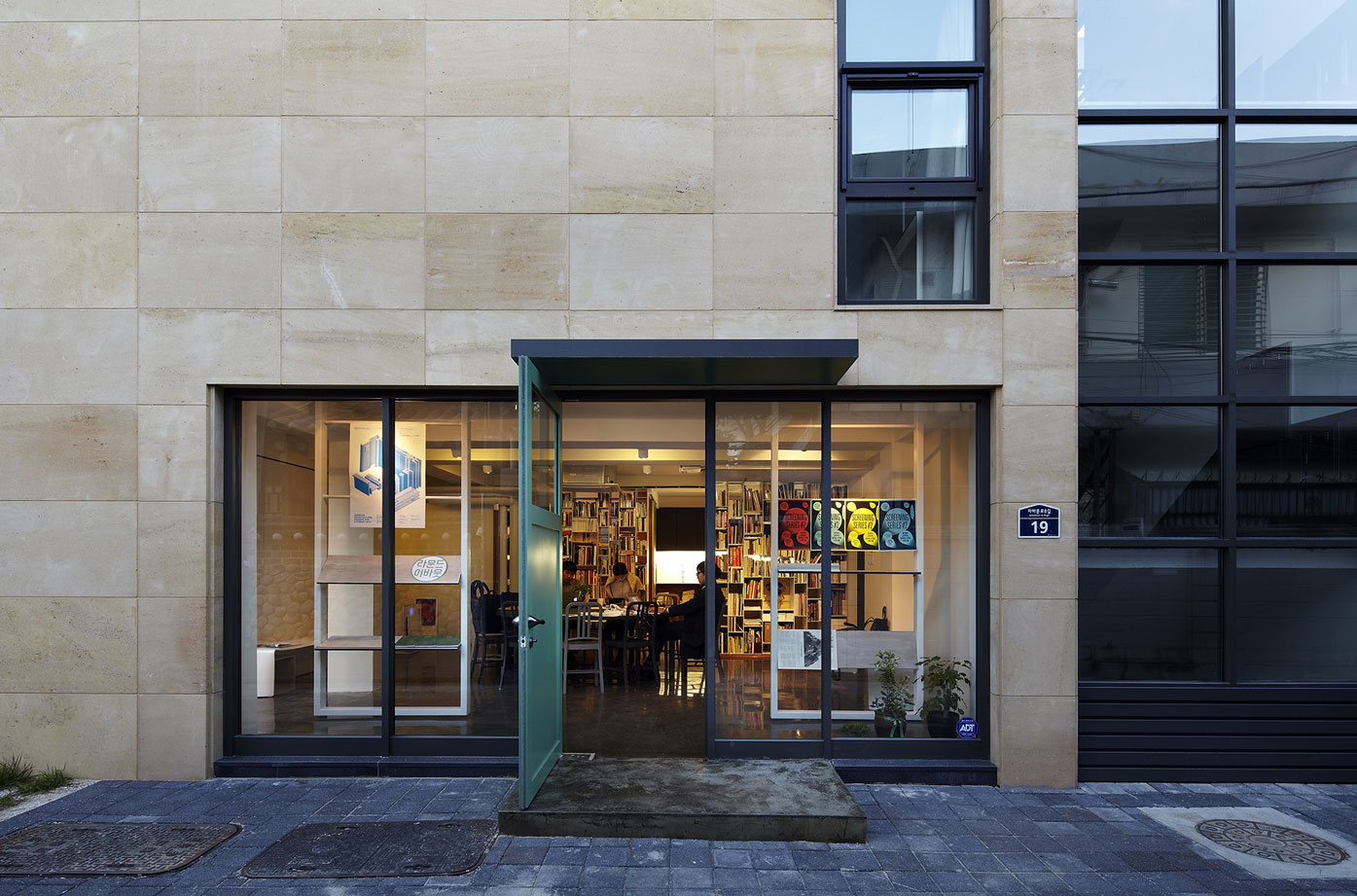
Free Distribution of the ‘Kim Jungchul Typeface’ for Architects
Following the spirit of Kim Jungchul, the founder of Junglim Architecture, a typeface was developed for all future generations who love architecture and culture to use freely. The handwritten font, embodying the founder’s commitment to social contribution, has been digitized. Gothic and Ming-style typefaces optimized for architectural drawings were developed and distributed free of charge so that all architects can use them without copyright concerns.
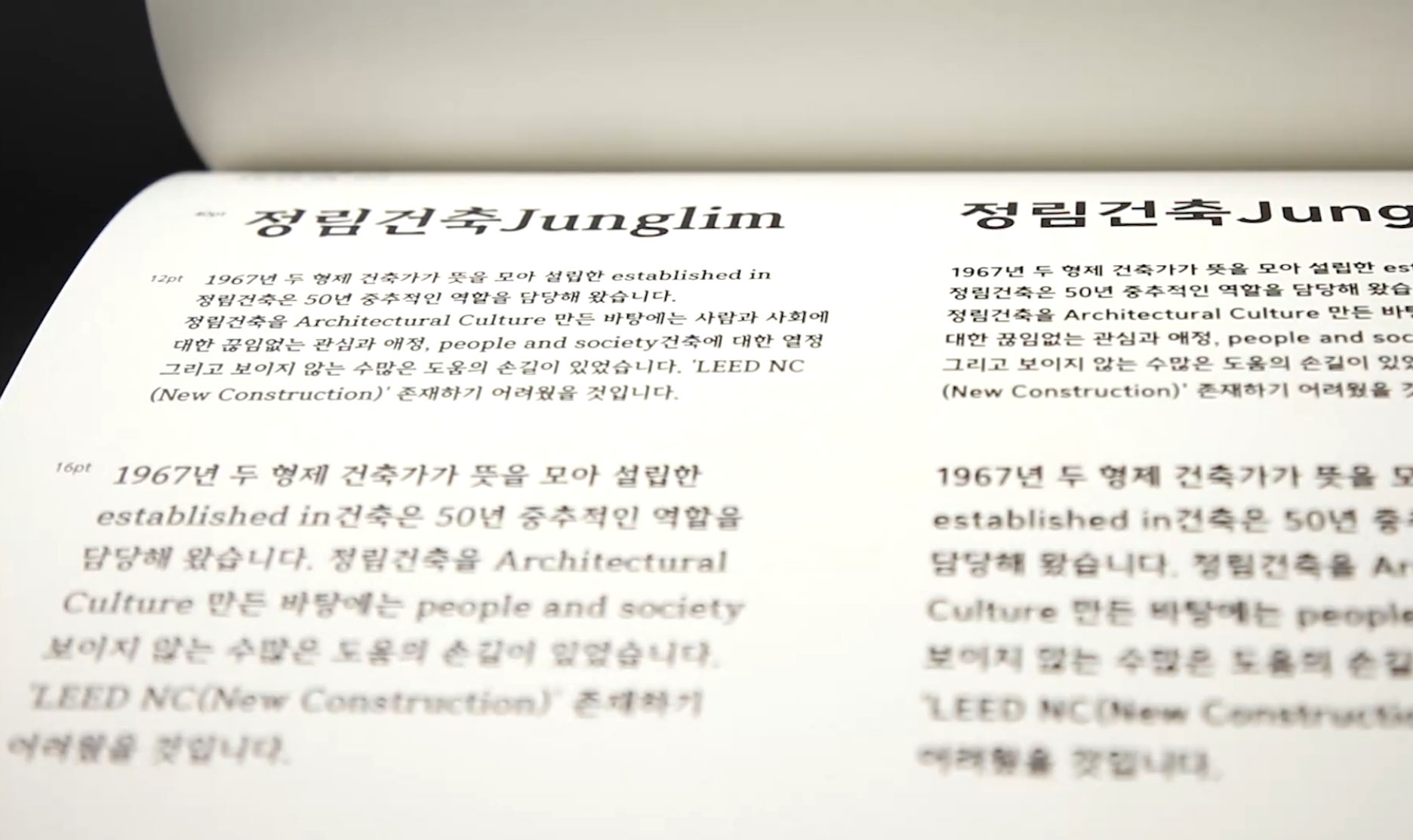
Sharing Architectural Knowledge and Intellectual Property
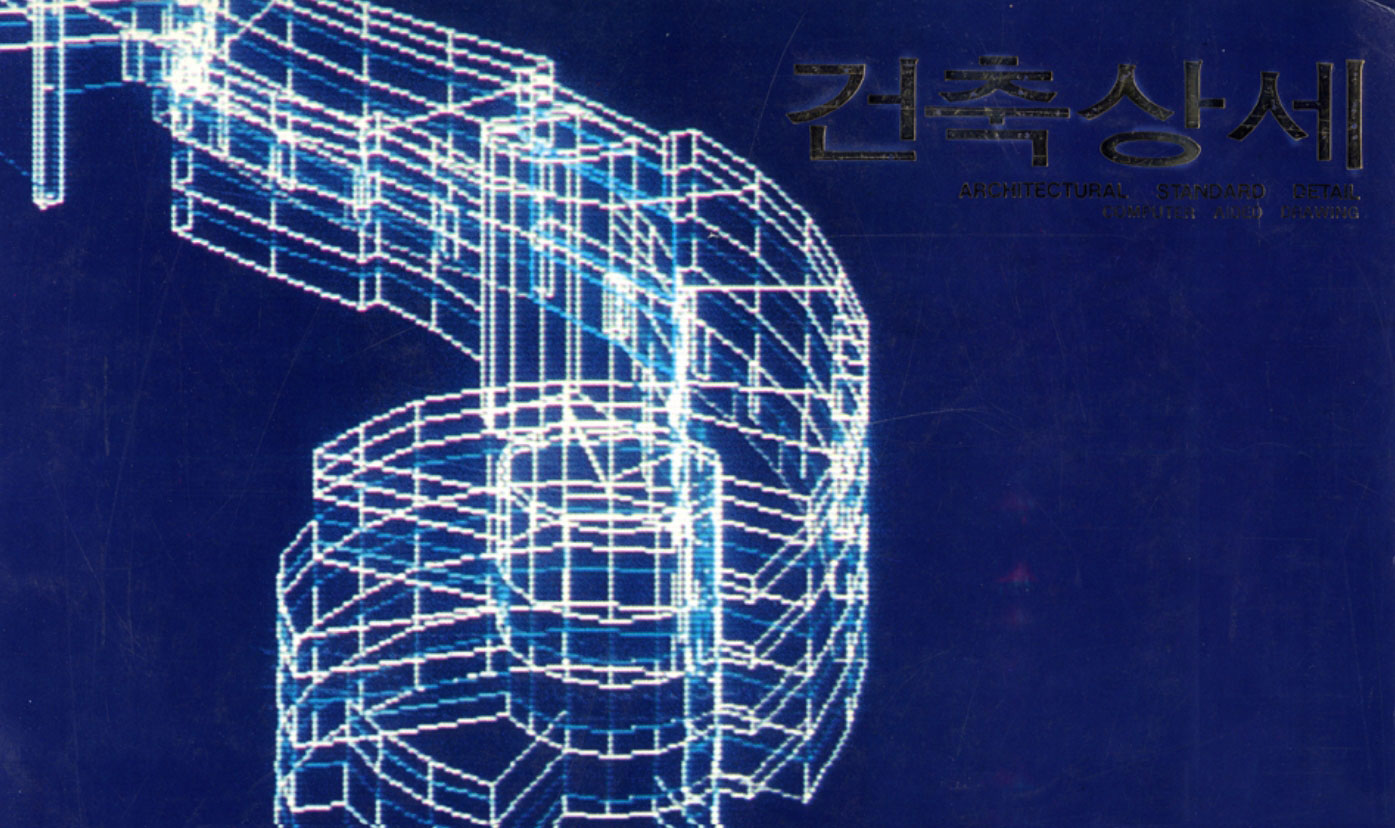
1987
Publication of Architectural Details
This architectural detail book was published and commercially distributed to elevate the level of Korean architectural technology by releasing standardized detailed drawings for the first time in the industry.
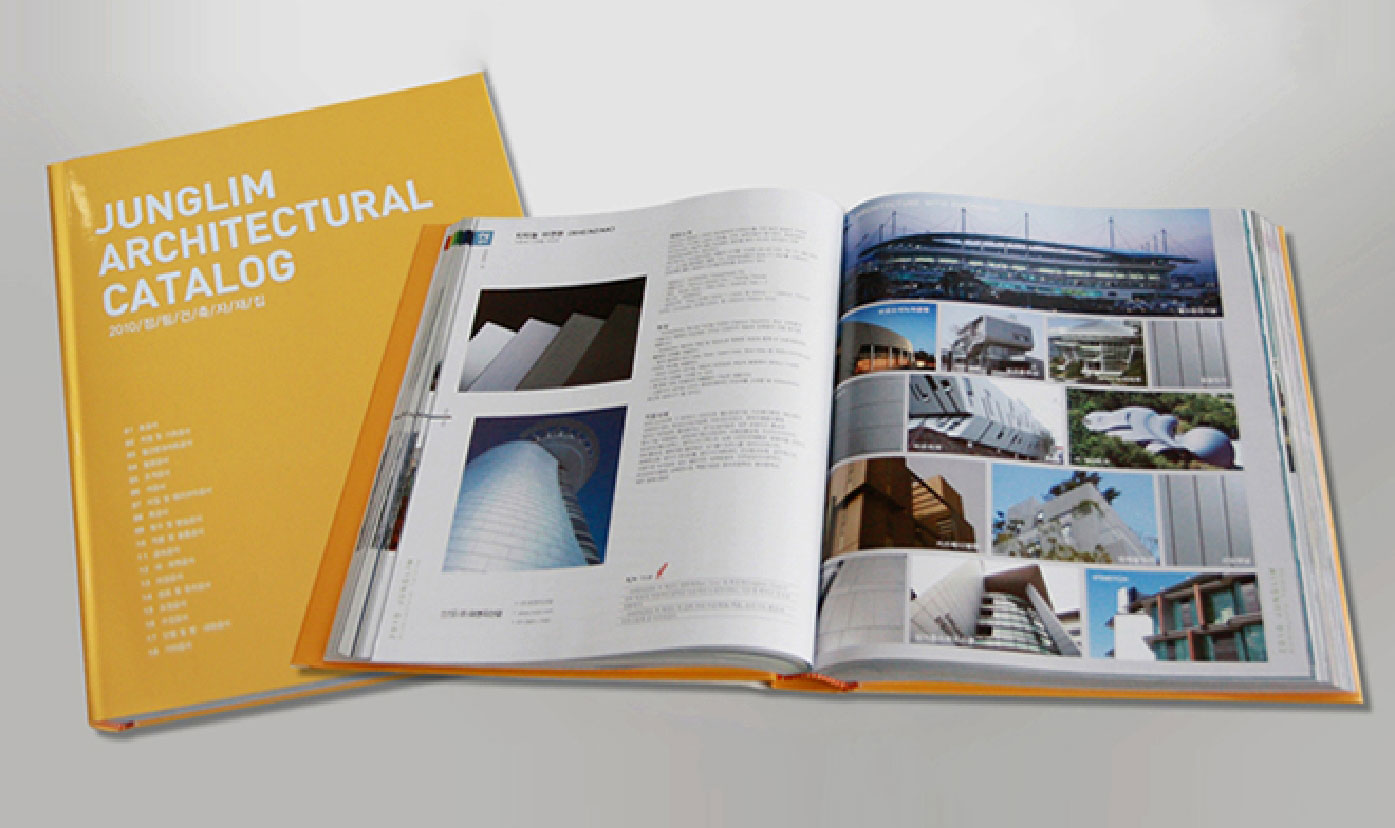
2010
Publication of “JUNGLIM ARCHITECTURAL CATALOG”
Accumulated data on building materials used in design practice were compiled into detailed sections by category and trade, including product introductions, features, application cases, and design tips, accompanied by detailed construction images.
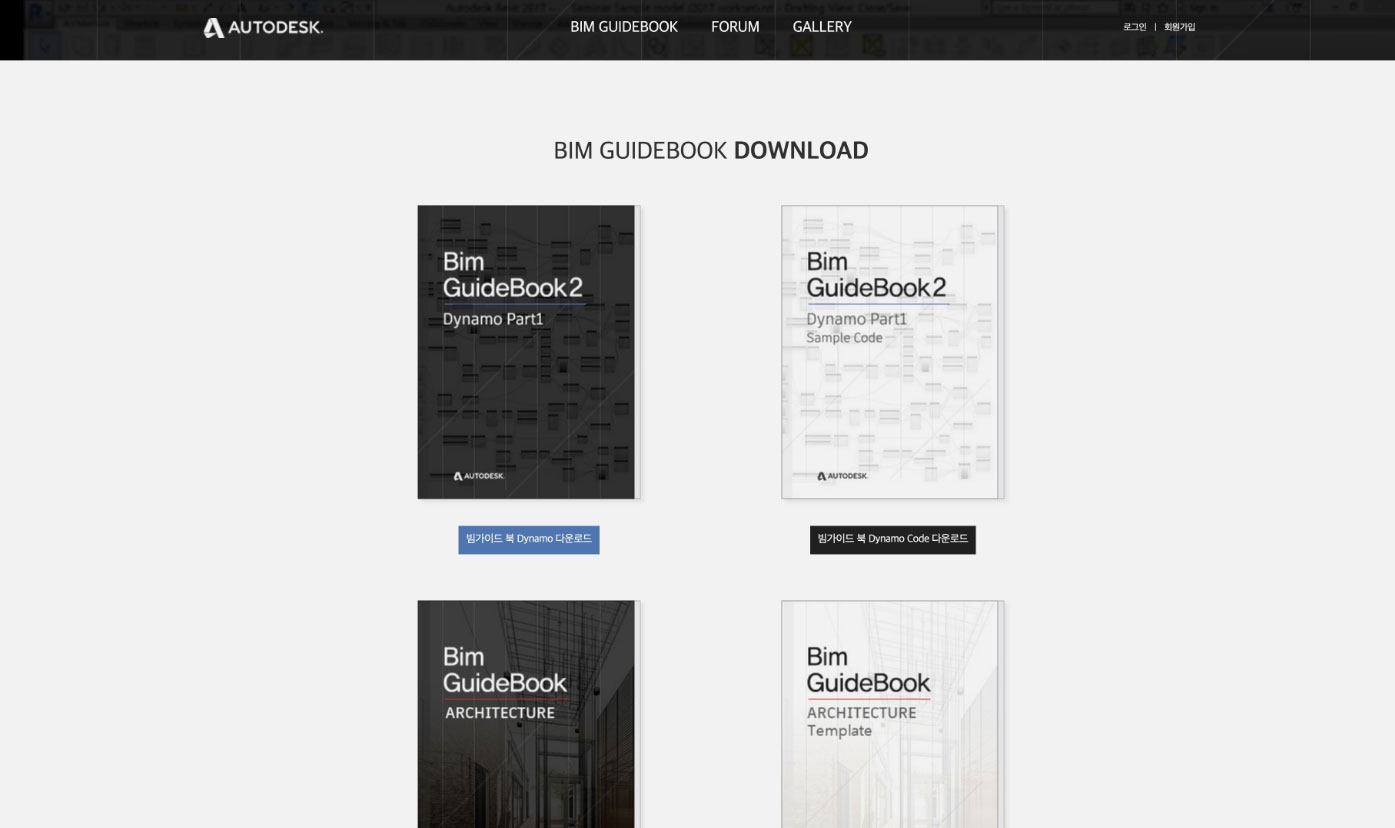
2016
Production and Distribution of AUTODESK & Junglim Architecture’s BIM GUIDE
The guidebook was produced and distributed to promote BIM activation in the architecture industry.
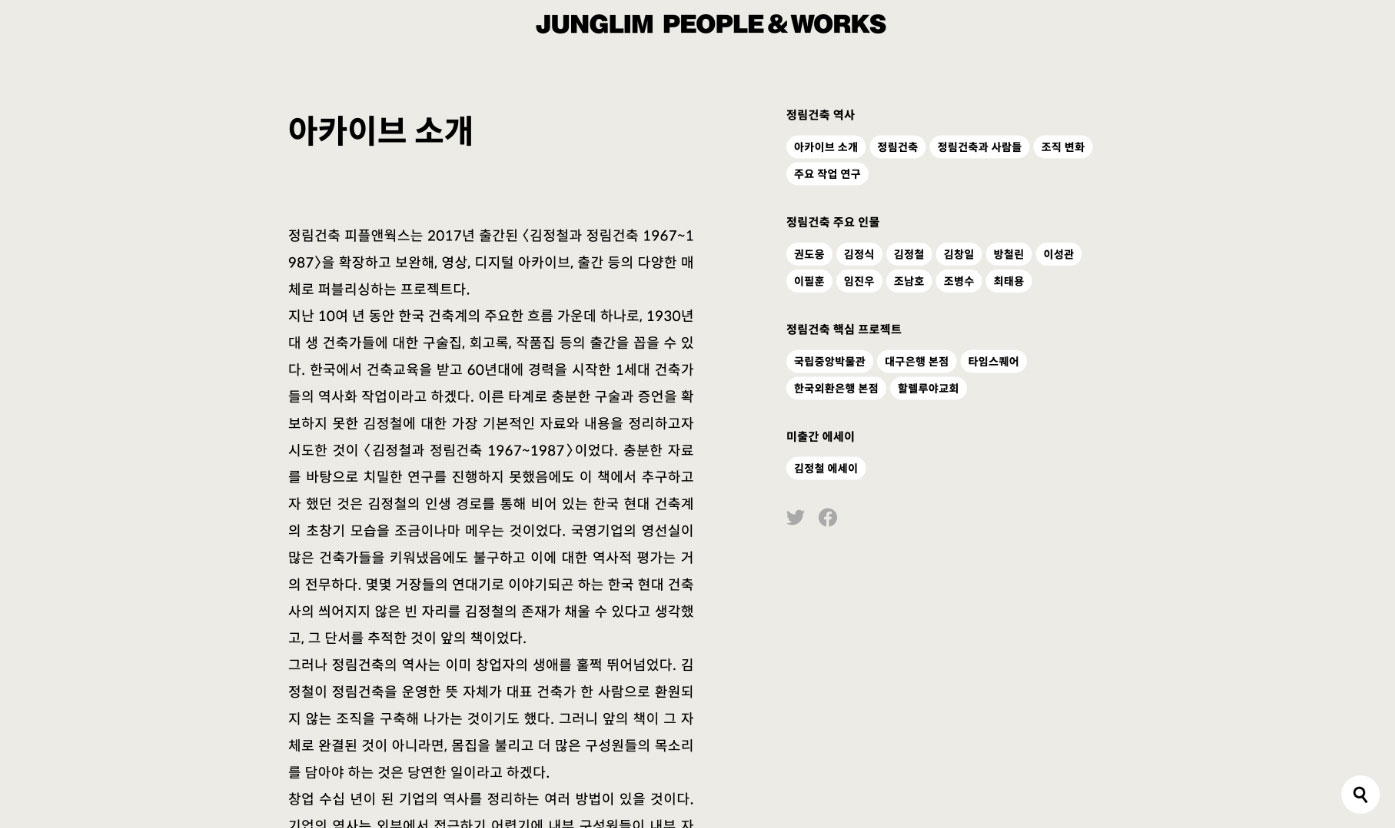
2020
Sharing “Junglim People & Works”
Records of Korea’s first-generation architects were shared, including plans and development processes of drawings.
Link to Junglim Architecture’s People & Works
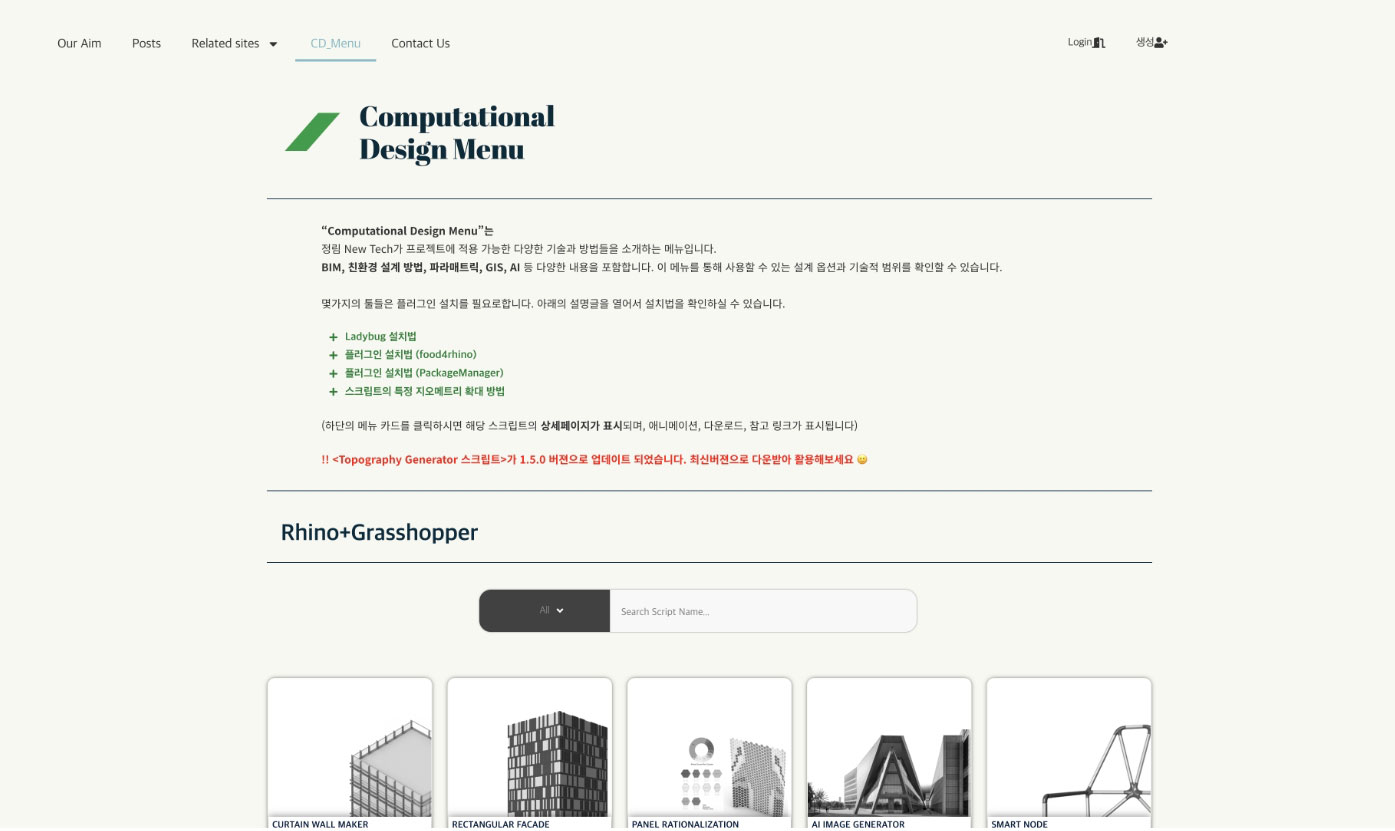
2022
Knowledge Distribution Sharing Platform for “Computational Design Research.”
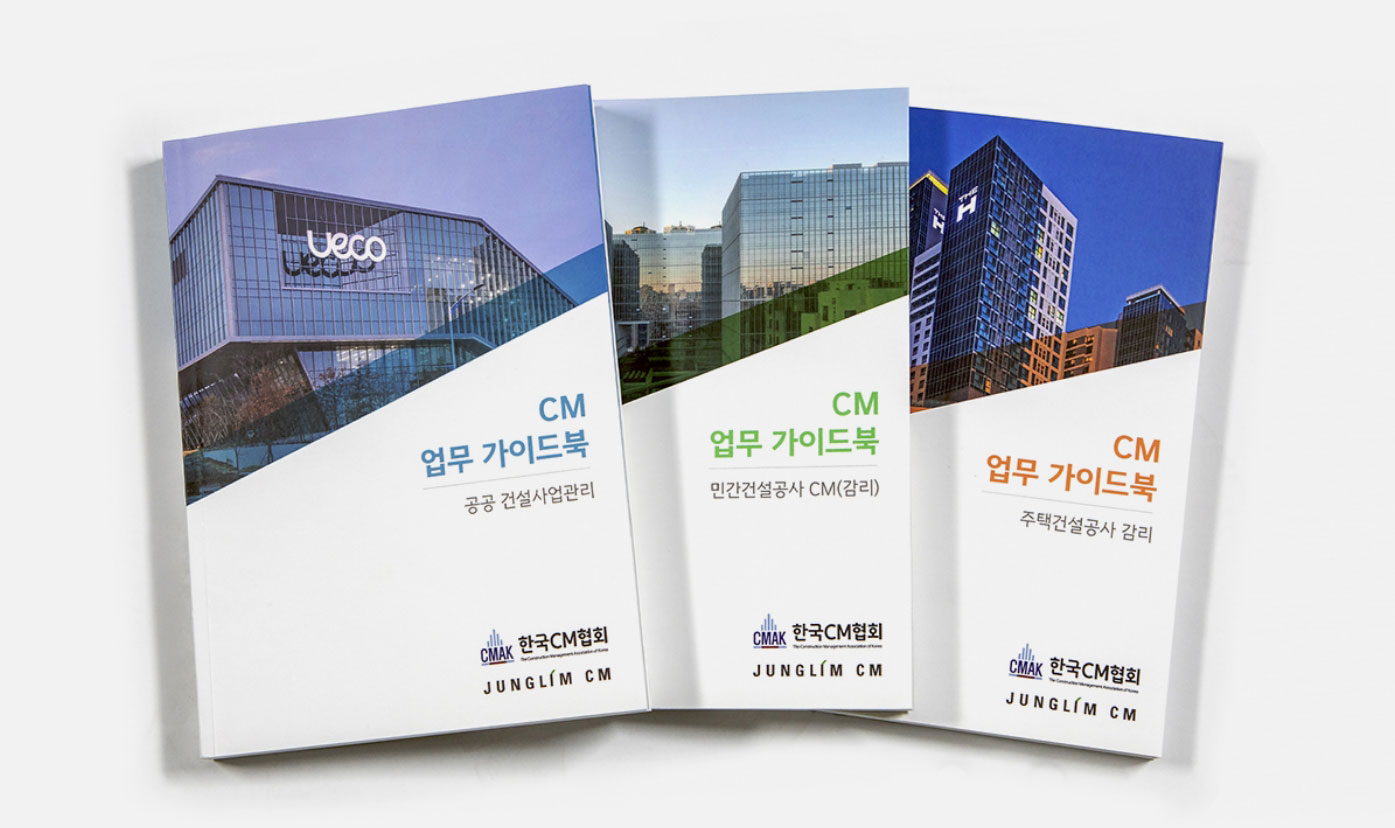
2024
Publication of “JUNGLIM ARCHITECTURAL CATALOG”
Guidebook for CM Work_Public Construction Project Management
Guidebook for CM Work_Private Construction Project CM (Supervision)
Guidebook for CM Work_Housing Construction Supervision
Architecture & Culture Award for Vietnamese Student
Architecture Competition
Architecture & Culture Award for Vietnamese Student
Junglim Architecture’s Vietnam Office co-hosts the “Architecture & Culture Award” for Vietnamese university students. Biennially held since 2022, this competition invites young aspiring professionals — future leaders of Vietnamese society — to express their concern for their environment, society, and neighbors through assigned themes, fostering collaboration among people from various fields to seek innovative solutions.
Introduced for the first time in Vietnam in partnership with Banlang University, the inaugural competition saw 143 university students participating in 36 teams, and the second round attracted around 200 students in 50 teams, maintaining consistently high interest.
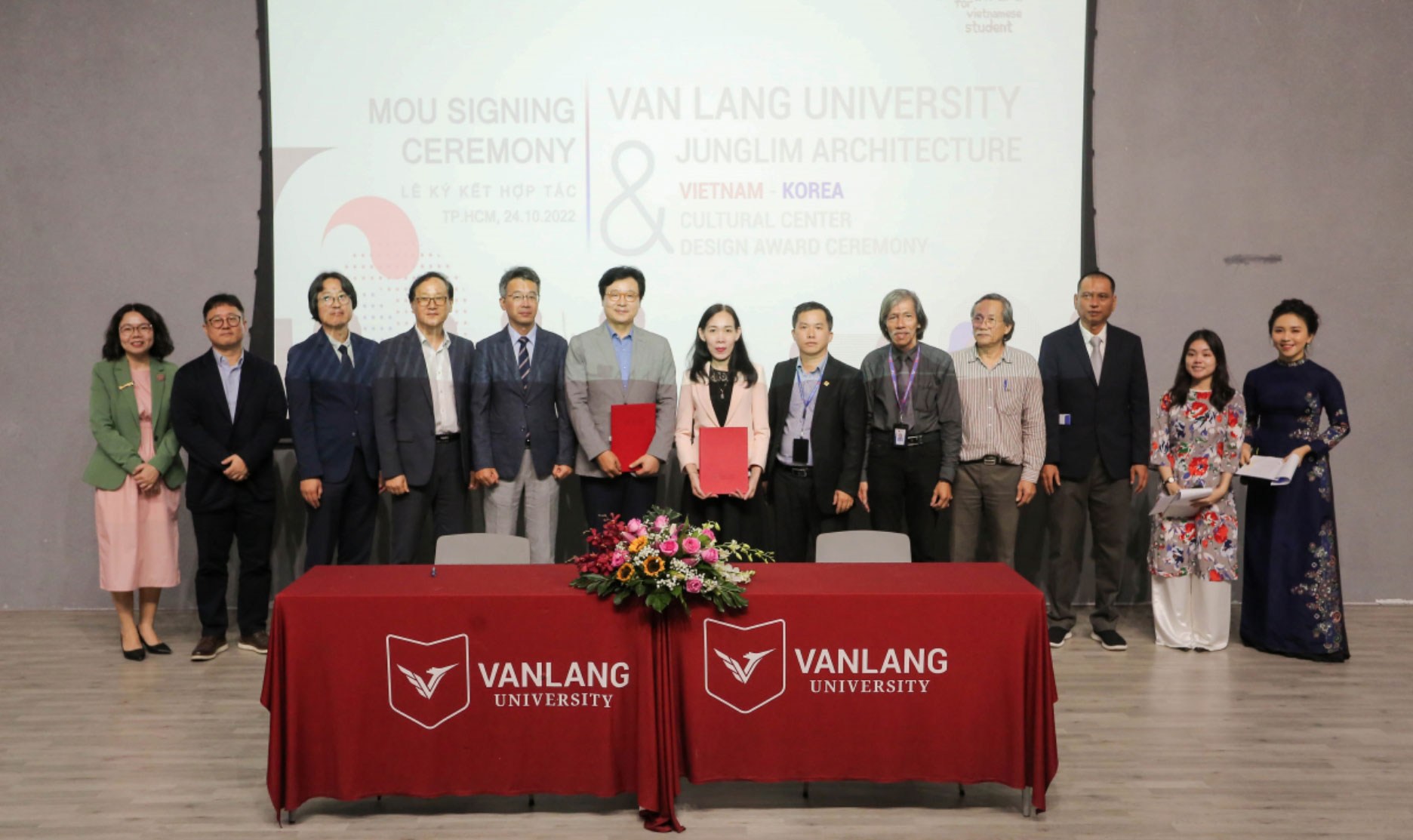
Social Contribution in Harmony with the World
Junglim Architecture has improved local communities and marginalized groups’ spatial environments through pro bono design, supervision, and construction management. From supporting overseas educational facilities to disaster recovery and improving housing environments for people with disabilities, we connect the inherent value of architecture with social responsibility. Through employees’ voluntary participation and partnerships, we practice a culture of sustainable sharing.
Pro bono design, supervision, and construction management
-

Pro Bono Master Plan and Basic Concept (Proposal) for the Restoration Project of Mangsang Auto Camping Resort
In early April 2019, following a large wildfire that caused extensive damage, Junglim Architecture donated a master plan and basic concept (proposal) to Donghae City to support the restoration efforts. The restoration project for Mangsang Auto Camping Resort began with design in 2019 and was completed in 2021 through Junglim CM’s quality and safety management, timely completion, and budget savings.
-

Pro Bono Design and Construction Management for the “Vietnam Dream Library”
Located in Nha Be District, the southernmost part of Ho Chi Minh City — the heart of Vietnam’s economy moving forward vigorously beyond the pain of a long war — Junglim Architecture supported pro bono design and construction management services.
-

Remodeling of “Clara’s House” in Seongsimwon
Seongsimwon in Sancheong, Gyeongnam, is a community village for people living in isolation due to Hansen’s disease. A long-term master plan was developed to improve the performance and image of the aging existing facilities through remodeling, with priority given to the design of renovating “Clara’s House.”
-

Remodeling of the Main Building of “Seoul Municipal Boys’ Home”
The remodeling of Seoul Municipal Boys’ Home involves designing and supervising the repair and renovation of its aging main building. This project was undertaken as a social contribution effort to practice corporate ethics and to foster a sense of professional responsibility among employees.
-

Pro Bono Design and Supervision for the Naruter Community Education Building
The Naruter Community is a social welfare organization for people with intellectual disabilities. Junglim Architecture carried out a social contribution project in close dialogue with the community’s brothers, creating a warm educational space for people with disabilities as well as private resting areas for teachers after work.
-

Pro Bono Design Service for the Housing Renovation Project for People with Disabilities
The housing renovation project for people with disabilities began in 2002 as employees of Junglim Architecture gradually participated in the housing improvement initiative led by a civic group. The project aims to create a foundational environment for independent living by improving inconvenient living conditions experienced by people with disabilities and resolving structural issues in buildings.
-

Pro Bono Design Service for a Chapel in Jeongseon, Gangwon Province
The Chapel in Jeongseon, Gangwon Province, is a sacred space in a cozy rural village. Junglim Architecture naturally incorporated the winter wind and wing-shaped architectural form into the design to simultaneously express the living nature of the region and its sacred religious characteristics.
-

Pro Bono Design Service for Pyongyang University of Science and Technology
This is a large-scale comprehensive design project for North Korea’s cutting-edge engineering university, Pyongyang University of Science and Technology, spanning 2 million square meters. Based on experience gained from visiting North Korea during the campus site selection, the project carefully considered surrounding road conditions and North Korea’s realities for the planning of 13 buildings and facilities. Overcoming infrastructure challenges, the project was successfully completed in two and a half years.
-
The Bright Foundation
The Bright Foundation is a public foundation established in 2004 by the late Honorary Chairman Kim Jung Chul, founder of Junglim Architecture, who donated 24% of the company’s shares. The foundation operates with the mission of “continuously nurturing, supporting, and connecting those who live transformative lives to create a world full of light.” Its main programs include public interest management consulting, reunification education, support for North Korean residents, Atteul Early Childhood Education Community, Youth Mentoring Seed School, and Public Interest Management Academy. Particularly, with a posture of preparing for and welcoming reunification, the foundation steadily pursues support projects for North Korea, assisting with resources such as corn noodles and fundraising through its network.
-
Interaction with Marginalized Neighbors, Bahabapjip
Bahabapjip is a nonprofit organization that supports the self-reliance of marginalized neighbors and provides various support programs and free meals. Junglim Architecture donates proceeds raised annually through regular sponsorship and year-end bazaars, and carries out volunteer activities as one of the programs during new employee orientation. Through its ongoing relationship with Bahabapjip, Junglim Architecture fulfills its corporate responsibility to contribute to society.
-
Matching Fund Growing Through Employee Participation
The Matching Fund is a program where Junglim Architecture employees annually donate goods to the year-end Junglim Bazaar, and when funds are raised through online and onsite auctions, the company matches the total amount and donates the combined sum through social organizations. When environmental disasters or events requiring social assistance occur, the company actively participates in fulfilling its social responsibility by fostering a culture of encouraging employee donations.
-
Café Operation for Employing People with Disabilities
This café operates to support the independence and employment expansion for people with disabilities. It serves coffee made from premium beans supplied by “Bear Better,” a business employing people with disabilities, conveying the warmth of a daily cup of coffee along with the meaning of social solidarity to its members. Besides, by gifting Bear Better’s handmade cookies on the birthdays of all members, the café goes beyond simple celebration to spread empathy and support for disability employment.
